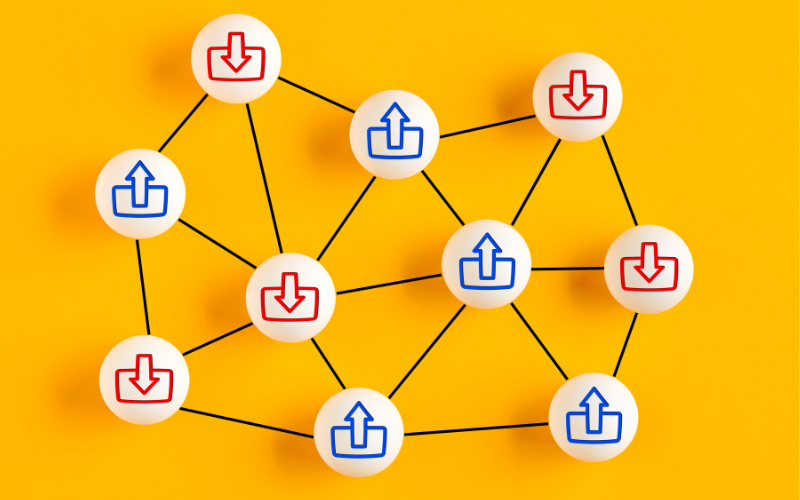Definition of Online Data Tracking

Online data tracking refers to collecting and analyzing information about an individual’s online behaviour, such as browsing history, search queries, and interactions with websites and apps. This data is often collected through cookies, tracking pixels, and other tracking technologies, and is used by companies and organizations to understand their audience better and target them with personalized advertising and marketing messages. While data tracking can provide valuable insights for businesses, it has also raised concerns about privacy and data security.
Types of Online Data Collected
Several types of online data can be collected, including:
1. Browsing history: This includes the websites you visit, the pages you view, and the time spent on each page.
2. Search queries: This includes the keywords you use when searching for information online.
3. Location data: This includes your physical location, as well as the locations you visit online.
4. Social media activity: This includes your interactions on social media platforms, such as likes, comments, and shares.
Standard Methods Used For Data Tracking
There are several standard methods used for data tracking, including cookies, web beacons, and device fingerprinting. Cookies are small text files that are stored on your device when you visit a website. They can be used to remember your preferences, login information, and other details about your browsing habits.
Web beacons, also known as pixel tags or tracking pixels, are small images that are embedded into web pages. They can be used to track user behaviour, such as clicks and page views.
Scope of Online Data Tracking

Online data tracking can be used for a variety of purposes, including targeted advertising, website analytics, and user behaviour analysis. It allows companies to collect and analyze data about their users’ browsing habits, interests, and preferences. This information can then be used to create personalized advertising campaigns, improve website design and functionality, and enhance user experiences. However, online data tracking can also raise privacy concerns, as it involves the collection and use of personal information without users’ explicit consent.
Data Collection By Websites And Apps

Websites and apps collect data from their users in various ways, including through cookies, tracking pixels, and user input. Cookies are small files that are stored on a user’s device and contain information about their browsing habits and preferences. Tracking pixels are small images embedded in websites that allow companies to track user engagement and behaviour. User input, such as filling out a form or clicking a button, can also provide valuable data to companies.
Data Sharing With Third Parties
Many websites and apps also share user data with third-party companies for various purposes, such as targeted advertising and analytics. This can raise concerns about privacy and data security, as users may not be aware of who their data is being shared with or how it is being used.
Impact on Personal Privacy
The collection and sharing of user data can have a significant impact on personal privacy. Users may not be aware of the extent of data being collected about them and how it is being used. This can lead to a loss of control over personal information and potentially harmful consequences, such as identity theft or targeted advertising. It is important for companies to be transparent about their data collection and sharing practices and for users to be informed about their rights and options for protecting their privacy.
Invasion of Personal Information
The invasion of personal information has become a growing concern in today’s digital age. With the increasing amount of data being collected and shared by companies, individuals are at risk of having their personal information compromised. This can include sensitive information such as financial data, medical records, and even location data. The consequences of an invasion of personal information can be severe, ranging from identity theft to cyberbullying.
Profiling And Targeted Advertising
Profiling and targeted advertising are two common practices that contribute to the invasion of personal information. Profiling involves the collection and analysis of data to create a profile of an individual, including their interests, habits, and behaviours. This information can then be used to tailor advertising and marketing efforts towards specific individuals. Targeted advertising utilizes this information to deliver personalized ads to individuals based on their online activity and interests.
Risk of Identity Theft And Fraud
Identity theft and fraud are serious risks associated with the invasion of personal information. When personal information is collected and stored by companies or institutions, it can be vulnerable to cyber-attacks and hacking. If this information falls into the wrong hands, it can be used to open fraudulent accounts, make unauthorized purchases, and commit other forms of financial fraud.
The extent of Online Tracking
Online tracking is becoming more prevalent as technology advances. Websites and apps use various methods to track user activity, such as cookies, web beacons, and device fingerprinting. This tracking can provide valuable data to companies for targeted advertising and personalized content, but it can also infringe on user privacy. The extent of online tracking varies by website and app, but users need to be aware of the tracking methods used and how to manage their privacy settings.
Tracking Across Devices And Platforms
Tracking across devices and platforms has become increasingly common as people use multiple devices to access the internet. This can include tracking a user’s activity across their smartphone, tablet, laptop, and even smart home devices. Companies use this information to create a more complete profile of the user and deliver targeted advertising.
Tracking in Social Media Networks
Social media networks also use tracking methods to collect data on users’ behaviour and interests. This can include tracking the pages a user visits, the posts they like and share, and the ads they click on. Social media platforms then use this data to personalize the user’s experience and show them more relevant content and ads.
Tracking in Search Engines And Online Shopping
Search engines and online shopping platforms also use tracking methods to collect data on users’ behaviour and interests. This can include tracking the keywords a user enters in their search queries, the products they view and purchase, and the websites they visit after leaving the platform. This data is then used to personalize the user’s search results and suggest products that they may be interested in purchasing. Additionally, some online shopping platforms use this data to offer personalized discounts and promotions to users.
Mitigating Online Data Tracking
There are several ways to mitigate online data tracking. One way is to use a virtual private network (VPN) which encrypts your internet traffic and hides your IP address, making it more difficult for websites to track your online activity. Another way is to use ad and tracker blockers, which prevent websites from loading ads and tracking scripts. Additionally, you can adjust your privacy settings on social media and shopping platforms to limit the amount of data they collect about you.
Browser Settings And Privacy Tools
There are also several browser settings and privacy tools that can help mitigate online data tracking. For example, most modern web browsers offer a private browsing mode that does not save your browsing history, cookies, or temporary files. You can also adjust your browser’s privacy settings to limit the amount of data that websites can collect about you. Another useful tool is the Electronic Frontier Foundation’s Privacy Badger, which blocks third-party trackers and cookies from websites that you visit.
Advancements in Tracking Technologies
Advancements in tracking technologies have made it more difficult to protect your online privacy. For example, some websites use browser fingerprinting to track your online activity even if you have disabled cookies or are using a private browsing mode. Additionally, some companies use cross-device tracking to link your online activity across multiple devices, such as your computer, smartphone, and tablet. This allows them to build a more complete profile of your online behaviour and interests.
FAQs: Answers to Common Privacy Questions
How does online data tracking work?
Online data tracking can work in various ways, such as through cookies, browser fingerprinting, and cross-device tracking. Cookies are small files that are stored on your device and contain information about your online activity. Browser fingerprinting involves collecting information about your browser and device configuration, such as screen resolution and installed fonts, to create a unique identifier for tracking purposes. Cross-device tracking links your online activity across multiple devices to build a more complete profile of your behaviour and interests.
Can I completely stop online data tracking?
While it’s difficult to completely stop online data tracking, there are some steps you can take to reduce it. Here are a few suggestions:1. Use a privacy-focused browser extension or add-ons, such as uBlock Origin or Privacy Badger, to block third-party cookies and other tracking technologies.
2. Adjust your browser settings to limit data collection. For example, you can disable third-party cookies, clear your browsing history regularly, and use private browsing mode.
What are the risks of sharing personal information online?
Sharing personal information online can pose several risks, including:
1. Identity theft: If someone gains access to your personal information, they can use it to steal your identity and commit fraud.
2. Cyberbullying: Sharing personal information online can make you vulnerable to cyberbullying, harassment, and other forms of online abuse.
3. Privacy violations: Companies can use your personal information to target you with ads, and may even sell your data to third parties without your consent.
How can I protect my privacy on social media?
There are several steps you can take to protect your privacy on social media:
1. Use strong passwords: Create a strong and unique password for each social media account you have.
2. Limit personal information: Avoid sharing personal information such as your home address, phone number, and birthdate on social media platforms.
3. Adjust privacy settings: Review and adjust your privacy settings on each social media platform to control who can see your posts and personal information.
Are privacy policies and terms of service legally binding?
Yes, privacy policies and terms of service are legally binding. When you sign up for a social media platform, you agree to its terms of service and privacy policies which outline how your data will be collected, used, and shared. It’s important to read and understand these policies before agreeing to them. If you have any concerns or questions, you can reach out to the social media platform’s customer support team for clarification.
Conclusion
In conclusion, privacy policies and terms of service are legally binding. It’s important to read and understand these policies before agreeing to them when signing up for social media platforms. If you have any concerns or questions, you can always reach out to the platform’s customer support team for clarification.
